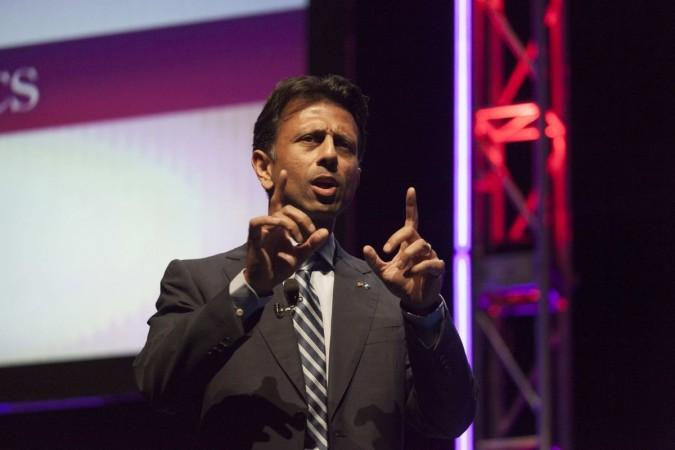
Louisiana Governor Bobby Jindal joined the 2016 U.S. presidential race on Wednesday, starting dead last among a very crowded field of hopeful Republican candidates in at least one poll.
"I am tanned, rested and ready for this fight," Jindal said during a campaign launch event held in a suburb of New Orleans, promising supporters he would "rock the boat."
Jindal, 44, is the first person of Indian-American heritage to run for U.S. president.
A two-term governor, once seen as a rising star in his party, joins 12 other Republicans, including former Florida Governor Jeb Bush, among the hopefuls seeking the nomination for the November 2016 election. Others, including Wisconsin Governor Scott Walker, are expected to join the race.
Jindal is in last place in a Reuters/Ipsos online poll of 15 Republicans, drawing less than 1 percent support. It could be difficult for him to make it to the top 10 candidates in national polling who will participate in the party's first debate in August.
He kicked off his campaign in a light-hearted way, with online videos of himself and his wife, Supriya, telling their three children he was running and promising his daughter they would get a puppy if they moved to the White House.
During the launch, Jindal sought to dismiss opposition to his candidacy, saying he was running "without permission from headquarters."
He argued he had turned Louisiana into a place with fewer ethics problems than in its past and with more people moving into the state than out of it.
Jindal, a Christian who converted from Hinduism as a teenager, is popular with social conservatives and evangelical Christians. However, his home state appeal faded this year as he tried to close a $1.6 billion shortfall in the state's budget without breaking a promise not to raise taxes.
Republicans in the state complain he spent too much time trying to court national attention while Louisiana floundered.
Jindal also jumped into a fight in May over religion and gay rights. He signed an executive order to allow businesses to refuse service for same-sex weddings, even though Louisiana's House of Representatives rejected a similar measure.
In 2009, Jindal delivered the Republican response to the President Barack Obama's first State of the Union address, and the party hoped he could be a counterweight to the new president. His speech, however, was mocked as amateurish and awkward.








